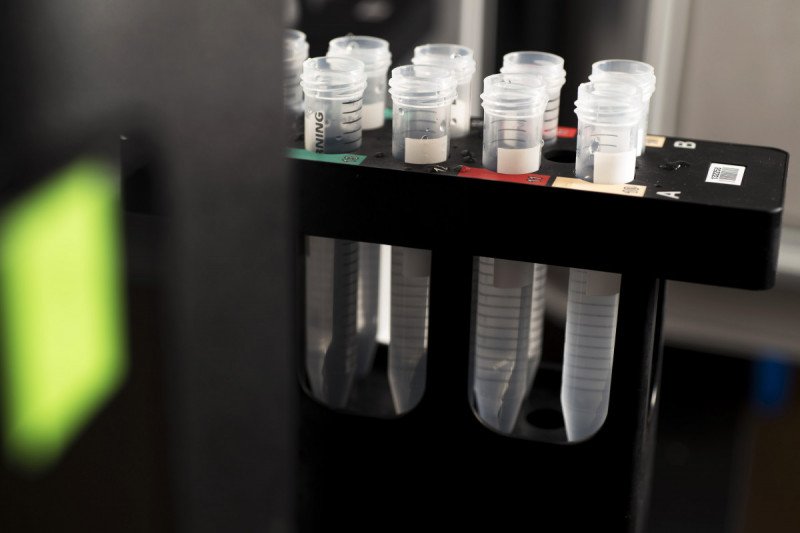
A study from Memorial Sloan Kettering (MSK) found that young patients ages 18 to 39 with early-onset cancer have an especially high risk of harboring inherited genetic (germline) mutations. Results from this study were presented by Zsofia K. Stadler, MD, medical oncologist at MSK, on June 19 during a media preview of the American Association for Cancer Research (AACR) Virtual Annual Meeting II. The virtual meeting will be held on June 22 to 24.
The study utilized the germline genetic testing protocol of MSK-IMPACT™ (which stands for integrated mutation profiling of actionable cancer targets), a high throughput, targeted-DNA-sequencing panel created by the Department of Pathology at MSK, that utilizes matched tumor-normal tissue samples for somatic mutation analysis. Using MSK-IMPACT, Stadler and colleagues studied germline mutations in 1,201 young adult patients who received a cancer diagnosis between 2015 and 2019 at MSK. The analysis was performed on DNA from blood samples in these patients.
“Through this study we found that patients with early-onset cancer, a distinct subgroup of young-adults with cancer, are at an especially high risk of harboring an inherited genetic mutation,” said Stadler. “Cancers typically diagnosed in older adults, including breast, colon, pancreas, kidney, prostate and ovaries, are extremely rare in this young age group, and are what we classify as ‘early-onset’ cancers. While some cancers, including sarcoma, testicular cancer and brain cancer, are more common in young adults.”
Of those they studied, 877 patients had early-onset cancer, with the most common cancers being colorectal, breast, kidney, pancreatic, and ovarian cancer. Alternatively, 324 patients had young-adult cancers, with the most common cancers being sarcoma, and brain, testicular, and thyroid cancers.
Looking at these two groups, researchers found that 21 percent of the patients with early-onset cancer and 13 percent of the patients with young-adult cancer had an inherited genetic mutation. Among patients with early-onset cancers, the highest rates of genetic mutations were found in those with cancer in the pancreas, breast, or kidney, with mutations in the BRCA1, BRCA2, ATM, CHEK2, and the Lynch syndrome-associated genes being the most frequent. Among patients with young-adult cancers, germline TP53 mutations were more common, which is consistent with Li-Fraumeni syndrome, a syndrome associated with childhood cancers, including sarcomas.
“Although the total population of young adults with cancer only represents about four percent of all cancer patients, studying this small group of patients is especially impactful as they face unique challenges,” said Stadler. “Early-onset cancer patients should undergo germline genetic testing given the high probability of identifying a genetic mutation. The results from this type of genetic testing have important downstream implications for cancer treatment, long-term surveillance and at-risk family members, whom in this case are often young siblings or children of the patient.”
MSK-IMPACT, developed by the Department of Pathology at MSK, was introduced in 2017 and became the first tumor-profiling laboratory-developed test (LDT) to receive authorization through the FDA. Opening the door to a more expansive genomic testing of all types of tumors, MSK-IMPACT utilizes precision oncology to analyze 468 genes, potentially offers thousands of people better treatment options.
This study was partially funded by the Precision, Interception, and Prevention Program; the Marie-Josée and Henry R. Kravis Center for Molecular Oncology; and the Robert and Kate Niehaus Center for Inherited Cancer Genomics, all at MSK.
Stadler’s immediate family member holds consulting/advisory roles in ophthalmology with Allergan, Adverum Biotechnologies, Alimera Sciences, Biomarin, Fortress Biotech, Genentech/Roche, Novartis, Optos, Regeneron, Regenxbio, and Spark Therapeutics.
Journalists may contact the Department of Marketing & Communications for more information.
Telephone: 212-639-3573
Email: [email protected]